Looks like Bollywood needs to learn a few lessons from Marathi movies' business model. After all, the regional industry has registered 200 per cent profit last year
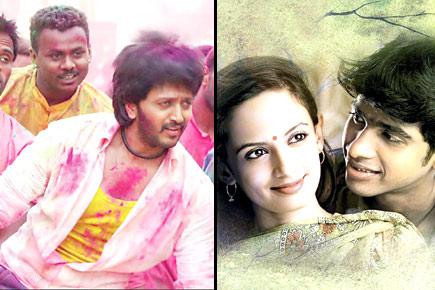
Here's why Marathi cinema is doing better than Bollywood
The Marathi film industry seems to have everything going for itself. The number of releases has shot up over the last three years and so have the profits — all this without "superstars" or big budgets.
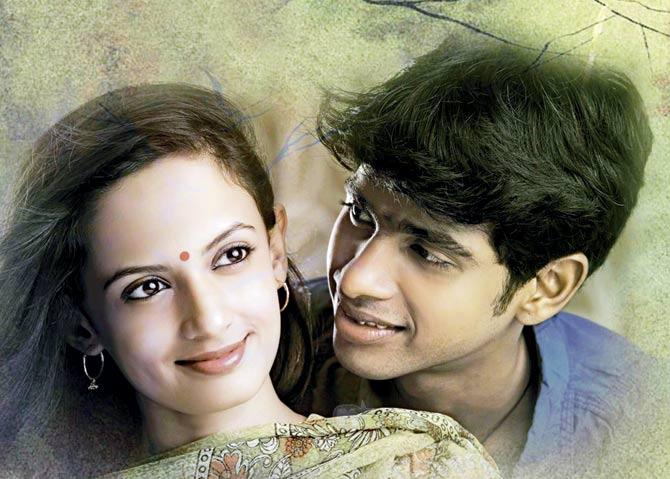
A still from Ravi Jadhav's 'Timepass', which was centered on a teenage love story set in the '90s, collected Rs 5 crore in its opening weekend
At the recently concluded annual session of the Federation of Indian Chambers of Commerce and Industry (FICCI), a panel of producer and studio representatives stated that the regional industry had registered nearly 200 per cent profits in the previous year. The much bigger Hindi filmdom, which rides on claims of crores of rupees, the gain was a meagre 0.6 per cent.
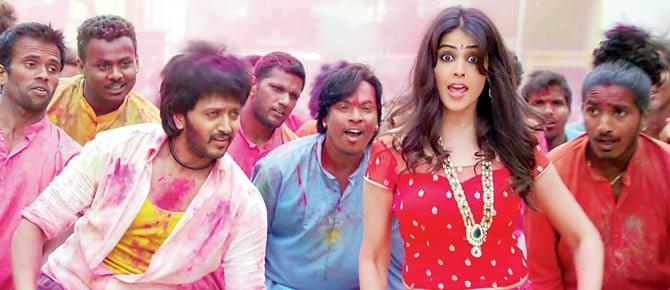
Riteish Deshmukh and Genelia D'Souza in the 'Mauli Mauli' track from the superhit film 'Lai Bhaari'. The song was used used to represent the tableau of Maharashtra at the 66th Republic Day parade
Trade expert Komal Nahata says the Marathi filmdom is pegged to be a Rs 150 crore industry. "So, if we consider that they have made 200 per cent profits, that makes it approximately Rs 300 crore. However, I don't agree with such numbers as some films click with the audience and do well at the box office while others don't."
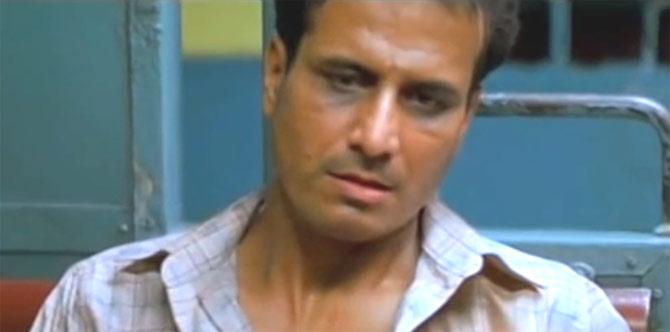
Sandeep Kulkarni a still from 'Dombivali Fast'. Pic/YouTube
Last year, Ravi Jadhav's 'Timepass' raked in a record-breaking Rs 5 crore in its opening weekend. The film was made on a budget of Rs 1.75 crore and went on to earn Rs 30 crore, says the filmmaker, adding: "Planning is something that helps producers. We generally have a schedule of 30-35 days to complete a film. Marathi actors come from theatre, so they are disciplined and allot proper dates. Therefore, the budget of the film hardly goes beyond Rs 2 crore. The film narratives are simple and the shoot happens at real locations, which is why we don't have to spend too much money on the sets."
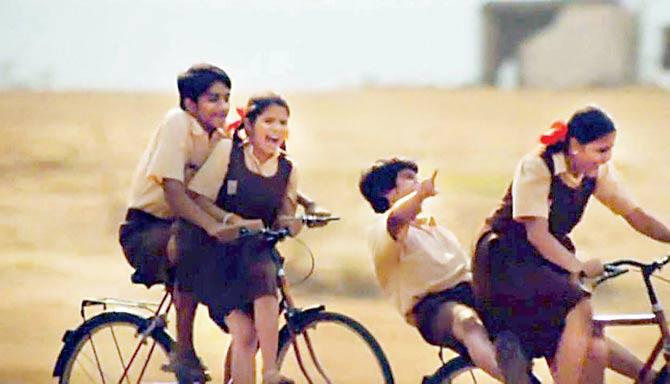
A still from 'Balak Palak'
At the FICCI session, the unanimous view on Bollywood's dismal performance was that most filmmakers depend heavily on the "star system" — the three Khans, Shah Rukh, Salman and Aamir — as it is a safe bet. Producers also have to bear the compensation of an actor's staff and spend heavily on the movie promotions, which have become an ego battle. Eventually, a project tends to go over budget.
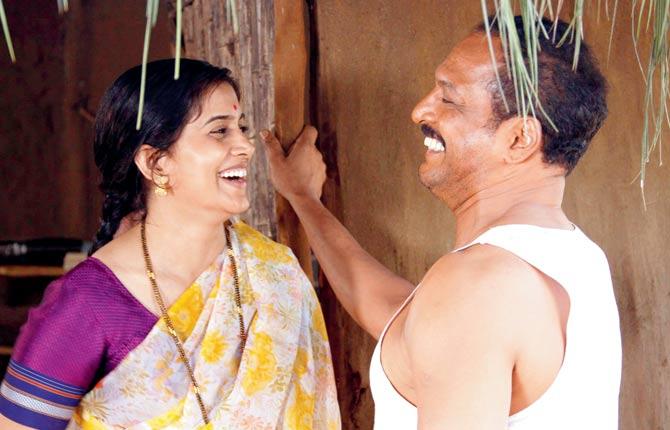
Sonali Kulkarni and Nana Patekar in the biopic on social activist Dr Prakash Amte
"I don't know the methods of calculating profit. But I think an important factor working in favour of Marathi movies is how you control the budget and spend on publicity," says Bollywood actor Riteish Deshmukh, who turned producer for Marathi films with the superhit comedy drama 'Balak Palak' (2013). "In Hindi cinema, there is more competition and producers have to spend a lot of money on marketing, so recovering it all becomes difficult. Someone needs to break this strategy," he adds.

Riteish Deshmukh
Sandeep Kulkarni, who featured in Nishikant Kamat's critically acclaimed film 'Dombivali Fast' (2005), feels the audience has been able to connect with recent Marathi films due to good content and music.
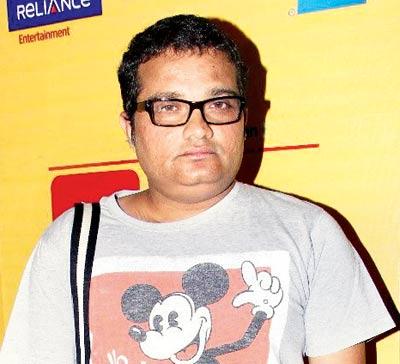
Ravi Jadhav
"Films like 'Lai Bhaari' had a novelty factor which drew crowds to the theatres. It was also marketed well. In case of Hindi films last year, only 'Queen' could make profits as it was made on a small budget film and had a good story," says the actor, who will produce the sequel to 'Dombivali Fast'.
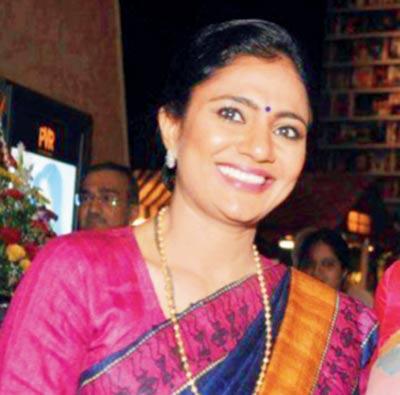
Samruddhi Porey
Director-producer Paresh Mokashi echoes his views, saying that Marathi culture has always supported good art, and the present-day filmmakers are in sync with the cultural milieu and aspirations of the audience. "Marathi films have never been a star-studded affair; people have always liked the way a story has been presented. So, films belonging to different genres like 'Lai Bhaari', 'Duniyadari', 'Elizabeth Ekadashi' and 'Fandry' have worked well," says the National Award winning filmmaker.
In the last few years, the regional film industry has handed out an assorted platter of coming-of-age films, social dramas, biopics as well as out-and-out masala movies for the masses, which have been a delight for the audience. And the winners, undoubtedly, have been the films with superior content.
Samruddhi Porey, who recently made a biopic on social activist Dr Prakash Amte featuring Nana Patekar and Sonali Kulkarni, says, "We have to face a lot of competition from Hindi and English films, but we are doing well because of quality and not quantity. Even though my film had a social message, it worked well commercially due to promotions. The producers these days are aware about where and how to promote their films and how much money they must spend. We did not go overboard with the promotions but the word-of-mouth buzz helped. The fact that we get subsidy from the government helps. The release date strategy and the absence of a star system also add to the profits."
Sources said the government subsidy for regional filmmakers is Rs 30-40 lakh.
 Subscribe today by clicking the link and stay updated with the latest news!" Click here!
Subscribe today by clicking the link and stay updated with the latest news!" Click here!







